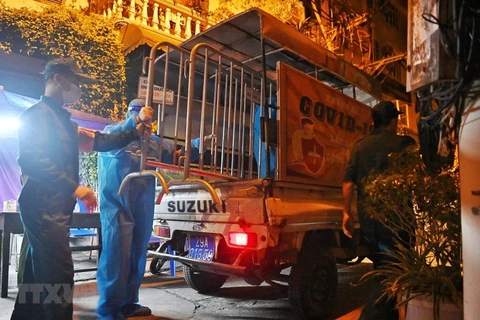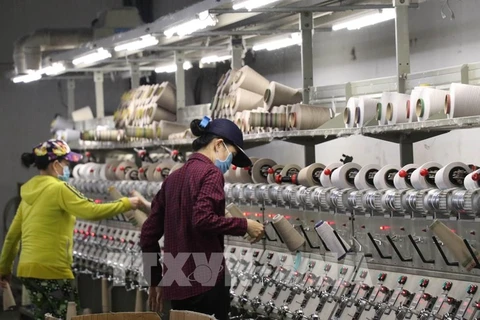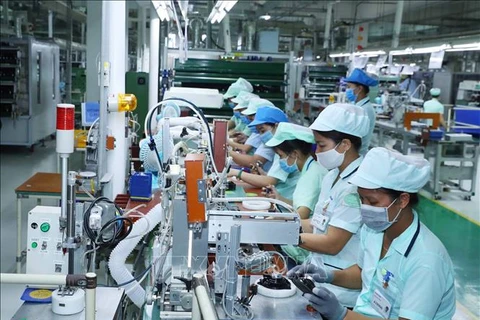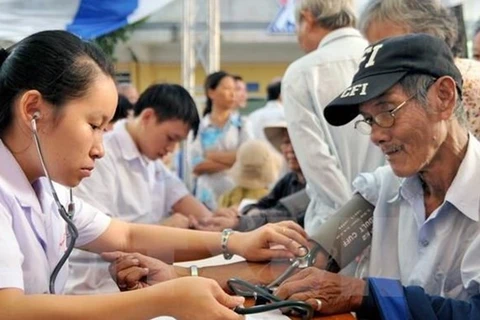Hanoi (VNA) – Amid a protracted COVID-19 outbreak, socio-economic data in October showed the contraction has bottommed out and Vietnam's economy has made positive changes, the World Bank (WB) in Vietnam said in its Vietnam macroeconomic update for November released on November 12.
The country's industrial production and total retail sales of consumer goods and services rebounded as economic activities gradually resumed but have yet to recover to the levels recorded before the outbreak, which began in April. Goods trade balance registered a surplus for the second month in a row as import growth continued to slow down. For the first ten months of this year, Vietnam enjoyed a trade surplus of 160 million USD. Meanwhile, the number of registered FDI decreased after three months of increase.
Despite rising fuel prices, inflation remained subdued due to falling food prices and weak domestic demand for other consumer products. Credit growth was stable in October. State budget revenue and expenditure balance returned to surplus in October mainly driven by a sharp fall in budget expenditures although revenues continued to decrease for the third month. In general, for the ten-month period, the budget surplus was a sign that tight fiscal policy would continue to be implemented.
According to WB experts, Vietnam is facing many obstacles in restarting the economy after a prolonged period of social isolation, but the positive developments observed in October showed that the situation will continue to improve, and growth will accelerate in the months to come./.
The country's industrial production and total retail sales of consumer goods and services rebounded as economic activities gradually resumed but have yet to recover to the levels recorded before the outbreak, which began in April. Goods trade balance registered a surplus for the second month in a row as import growth continued to slow down. For the first ten months of this year, Vietnam enjoyed a trade surplus of 160 million USD. Meanwhile, the number of registered FDI decreased after three months of increase.
Despite rising fuel prices, inflation remained subdued due to falling food prices and weak domestic demand for other consumer products. Credit growth was stable in October. State budget revenue and expenditure balance returned to surplus in October mainly driven by a sharp fall in budget expenditures although revenues continued to decrease for the third month. In general, for the ten-month period, the budget surplus was a sign that tight fiscal policy would continue to be implemented.
According to WB experts, Vietnam is facing many obstacles in restarting the economy after a prolonged period of social isolation, but the positive developments observed in October showed that the situation will continue to improve, and growth will accelerate in the months to come./.
VNA
























